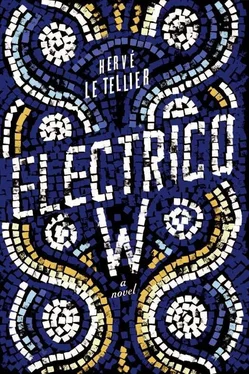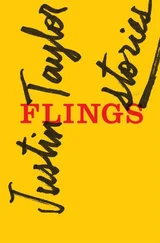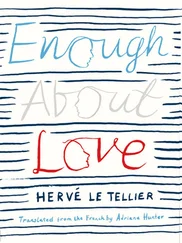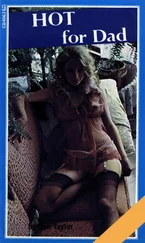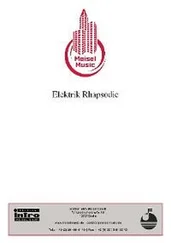While Antonio stifled his explosive laughter, the man pushed a white plastic chair toward me, dusting it carefully: “Sit yourself there, sir … There you are … I’ll bring you something to drink. A glass of water, or no, better than that, a Coke, it’s stuffed full of sugar, it’ll clear your head and do you good.”
Before I had a chance to refuse he was running for his hideout. The blood pounding in my temples was already calmer. I heard the sound of a car door and looked over to the quay.
A woman was sitting at the wheel of a little red Fiat, beside a large container. She took one last energetic drag on her cigarette and threw the stub out the window. The sun must have been in her eyes, she looked away, turned the key in the ignition, and drove off. I had seen her face for only a second. From that distance she looked like Duck. If that’s who it was, she hadn’t seen Antonio, and because he was sitting facing the sun, he couldn’t have seen her. I stood up, the car was already driving away. Antonio also turned, too late. The Fiat had disappeared behind a warehouse.
“What is it, Vincent? You’re still very pale.”
“I–I thought I recognized someone …”
“Your Lena Palmer? You see her everywhere … not a good sign. You’ve got it bad.”
I shook my head.
“No, it’s nothing. I must have been wrong …”
Our enthusiastic imp was back already with a bottle and a kindly smile. He uncapped it and handed it to me.
“Here, drink that,” he said and winked as he added, “it’s the real thing, you know, I make it myself.”
He stood up and found two more chairs for Antonio and himself. Then he suddenly looked worried.
“Hey, are you sure you don’t want to call a doctor?”
“No thanks, I’m feeling better already.”
“All right. Well, that’s a relief, because I do have a phone here, but it’s out of order.”
He watched me for a moment, suspiciously, while I drank the sparkling too sugary drink and he ran his hand over his sweating head.
“If you want my opinion, it’s because of the heat. You don’t really notice, but it’s very hot already, isn’t it?”
Antonio nodded in silence. “Are you Italian?” he asked, pointing at the sign.
“No, I’m from Porto, like my father. But my mother, now she’ s from Milezza in Sicily. That’s why I called the restaurant Stromboli’s. And I have an Italian name too. Leopoldo. Well, Leo. But I thought Stromboli’s sounded better than Leo’s. Don’t you think?”
There was a warm westerly breeze heavy with salt blowing off the sea.
“There’s always a bit of wind in this part of the port. It even carried off one of my parasols once.”
I don’t know whether I owed it to Leopoldo’s remedy, but I was feeling better. I took a step toward the footbridge, reached for my wallet.
“You must be joking!” the little man said indignantly, shaking our hands. “But you have to come and eat here, you will, won’t you? I’ll make penne all’arrabiata for you. It’s the house specialty, lots of chili, lots of garlic, lots of olive oil. And two or three pieces of penne, well, you have to. So, do you promise?”
We promised and left the barge. I would have liked to follow the route taken by the Fiat, perhaps it wasn’t that far away, but Antonio insisted on heading toward the streets he had known as a child.
We climbed up a narrow street toward Bairro Alto.
“You see there, Vincent, where there’s an electrical store, there used to be a hardware store, maybe it’s the old owner’s son who’s now selling Walkmans. He always used to hang things outside, dish racks and plastic bowls in sky blue, bright yellow, every color. When he opened in the morning he hung bunches of them from the awning, like Chinese lanterns. The candy was kept inside in glass jars, with lids to stop thieving fingers. He had hard candy, caramel, red and green barley sugar …”
“Did you come here with Duck?”
“I don’t remember. When I was with her I didn’t feel much like eating candy.”
“Where did she live?”
He tilted his chin toward one of the ten-story buildings at the top of the street. It was built in the sixties and had about a hundred peeling balconies, all laden with parched potted plants, broken old toys, bicycles, and laundry dryers.
“Do you remember which apartment it was?”
“No, just that it was on the other side of the building. On the seventh or eighth floor, I can’t remember. From her bedroom you could see the April 25 Bridge and the statue of Christ the King.”
Antonio looked away and we slowed imperceptibly.
We walked toward Eduardo VII Park, toward the clammy heat of Estufa Fria. Antonio couldn’t wait to rediscover the smell of the tropical hothouses, and he bought two tickets.
A slatted wooden canopy softened the sun’s rays. We wandered among the ferns and umbrella trees, and followed the meanders of an artificial river that snaked through the gardens. Antonio stopped from time to time to take a photograph.
A tousled-haired kid in sandals ran up to Antonio. He was holding a long cluster of milk-white flowers.
“Here,” he said, handing him the flowers with his arm held high. It was an insistent, determined gesture, not the sort of childish command that could be shrugged off. Antonio knelt, accepted the present, and put it in his buttonhole.
“Like that?” he asked.
“Yes, that’s great like that.”
The boy backed away slightly to look at Antonio and said solemnly, “They’ll bring you good luck. What are you going to give me in exchange?”
Antonio reached up and took his wallet from his jacket. I blenched: I hadn’t yet had time to put back the two photos after having them copied. All Antonio offered was a stamp, a French one.
“Here, it’s a French stamp. Is that okay?”
“That’s robbery …,” the kid retorted sulkily. He rubbed his head to show he was thinking, and added, “But it’ll do. Just this once.”
And he put the stamp in his pocket.
An elderly man appeared behind the child, slightly out of breath. He was holding his hat in his hand and automatically raised it above his head to greet us.
“Oh dear, oh dear, oh dear! Please forgive him, he does whatever he pleases. Marco, did you pick that off a tree? You mustn’t take flowers off the trees. Oh, I can’t cope with him, he won’t stay still for a moment.”
The child had already gone on ahead, escaping his minder.
“Marco, wait for me. Do forgive him, really, please.”
The old man trotted off in pursuit of the boy, and Antonio put the viewfinder to his eye, snapping the pair of them before they disappeared behind the foliage.
We crossed a bridge sculpted out of cement, then another. Passing by waterfalls and lagoons, the path took us to an indoor pond covered in water hyacinths. In the middle of this small lake stood a gray-and-pink marble building, it was imposing, monumental even, and overrun with creepers. It must have been the hothouse curator’s home or a reception area for summer shows. We were alone on the edge of the water, and I felt uncomfortable. We shouldn’t have been there, we had gone into an area out of bounds to visitors.
On the paved terrace in front of the building, sitting between the paws of a marble lion, a girl was twisting and turning a bamboo stick in the water. At first I thought she couldn’t have been more than sixteen. She was wearing a short dress with a red-and-blue pattern, her legs were slender but toned and tanned, and her black hair was held in a multicolored ribbon. Beside her on the flat tiles lay a sketchbook covered with pictures in charcoal and pastels. An old case for a child’s violin lay open, full of oil pastels. She didn’t appear to notice us and, for a moment, perhaps because she looked so unaware and peaceful, the place seemed to belong to her for all eternity.
Читать дальше
